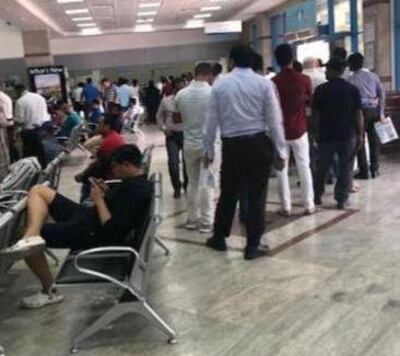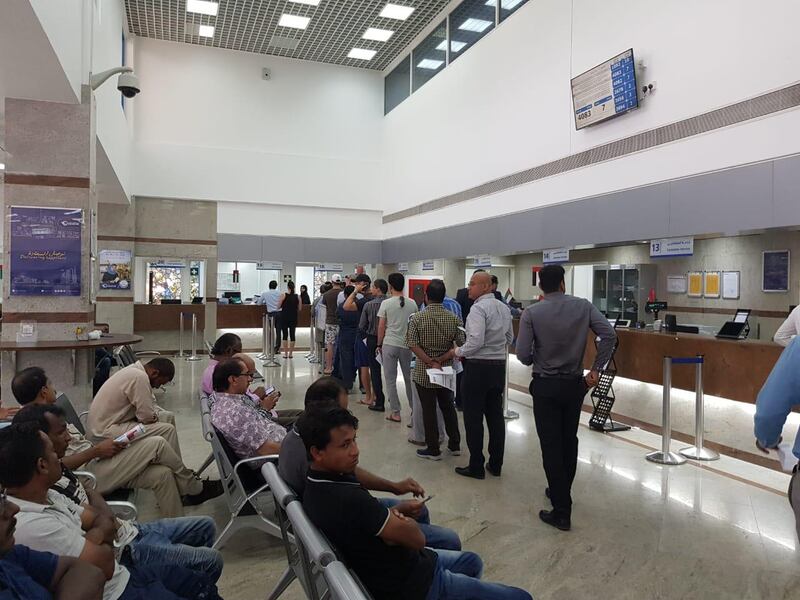This week’s announcement by Sheikh Mohammed bin Rashid, Vice President and Ruler of Dubai, of the results of a survey of government customer service centres, will, I hope, prompt civil servants around the country to sharpen their performances.
The two-month review of 600 service centres around the UAE resulted in the dismissal of senior managers at some of the failing sites, and two-month salary bonuses for employees at the best-performing centres.
I haven’t had the pleasure – or otherwise – of visiting any of those venues classed as being either the best or the worst, primarily because none of them are in the city of Abu Dhabi where I live. In any case, some are part of institutions that I rarely have reason to engage with, although the fact a centre run by Emirates Post was declared the worst in the country doesn’t surprise me, given some of my own experiences in dealing with the postal service. Emirates Post has vowed to improve “as a matter of urgency” and I look forward to seeing its transformation.
The decision to fire managers at the worst-performing centres while rewarding staff at the best is a pretty blunt instrument. But it is also a good way of making the point that when improvements are required, they need to be made quickly.
As Sheikh Mohammed said: “Providing high-quality services is a flexible and changing goal.” What might have been tolerated a few years ago is not necessarily acceptable today.
The evolution of technology plays a part here. What might have taken hours in the past should now, for the most part, take just a few minutes. Before the age of digitisation, government entities the world over suffered from bureaucratic slowness, but now times have changed and his has led to a rising level of expectation from customers who demand a better service.
Tucked away in the mists of memory is a plethora of horror stories about trying to negotiate procedures at government departments in the days before modern technology simplified our lives. There were long queues and instances of staff who had little interest in what they were doing and treated the public as though they were demanding favours. Unless the task was absolutely essential, the temptation was to put it off or to delay it as long as possible.
I remember my pleasure the first time that I visited a service centre of a particular ministry, shortly after it had become computerised, to get some paperwork sorted. I was in and out, job completed in a matter of a few minutes, after a short wait to be served by a young Emirati woman, who smoothly guided me through the process with a smile. I marvelled at the time at how different the experience was, compared to my earlier ones.
Perhaps in that tale, though, lies the real message of this week’s announcement by Sheikh Mohammed.
The worst performer in the ratings, a Sharjah branch of Emirates Post, was said to have “weak employee performance…and poor mechanisms in place to deliver services while morale was also described as low.”
If employees are to be able to deliver high quality service, they need to be motivated. Otherwise, it is to be expected that morale will be low and service will suffer. A good level of motivation is dependent on many factors and I recognise that financial rewards might play a role here. That could be beyond the control of the manager of an individual centre but a clearly defined career trajectory and rewards for good performance should always be present.
There are other factors too. An effective manager needs to display in his or her daily work a proper level of respect for their colleagues and to provide effective leadership. A willingness to share the workload at busy times, or to remember to praise good performance, can go a long way in creating a sense among employees of being part of a community.

Rules and regulations have their place. They are often most effective, however, when it is understood that they are intended to provide overall guidelines but that, on occasion, a little bit of flexibility can be allowed. A hard and fast enforcement of every little rule is not always best suited to the creation of a positive working atmosphere. That of course will affect the way employees interact with the public.
While I myself have not worked in offices where I had to deal with the public on a day-to-day basis, I would make one further suggestion that could perhaps be added to the new guidelines so emphatically spelt out by Sheikh Mohammed. Those being fired from the worst-performing centres, he said, “will be replaced by managers who know how to deal with customers”.
I hope the new managers will be selected from among those who also have a proven ability to work with their staff. Only if a proper degree of motivation is present at all levels can the objectives for top-quality service be achieved.
Peter Hellyer is a consultant specialising in the UAE's history and culture






